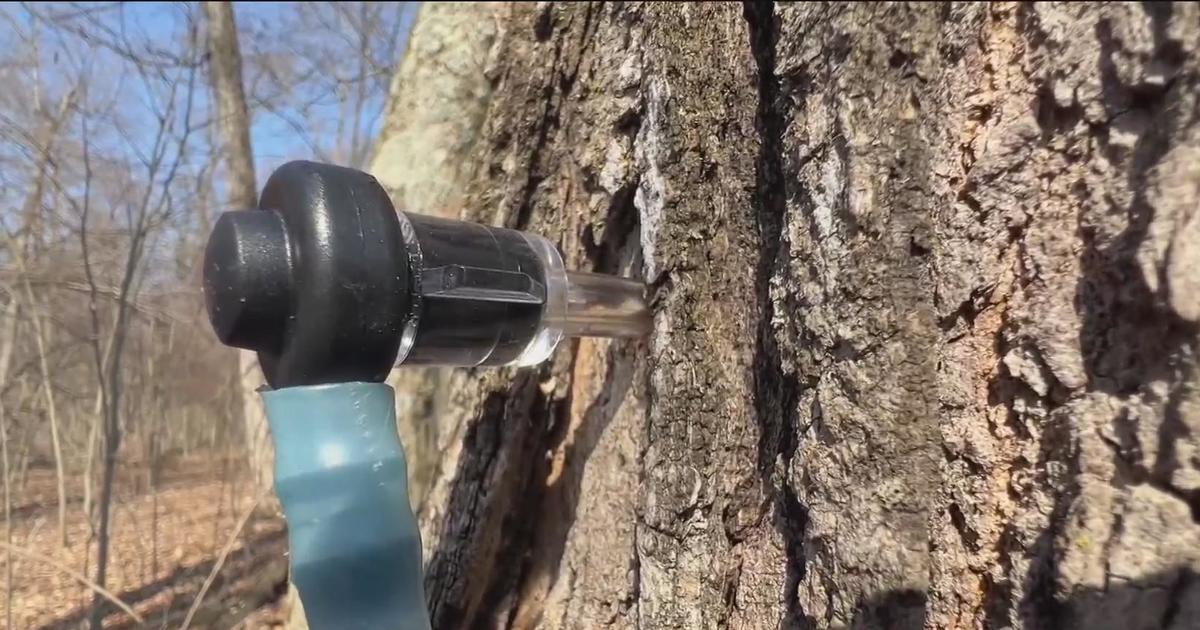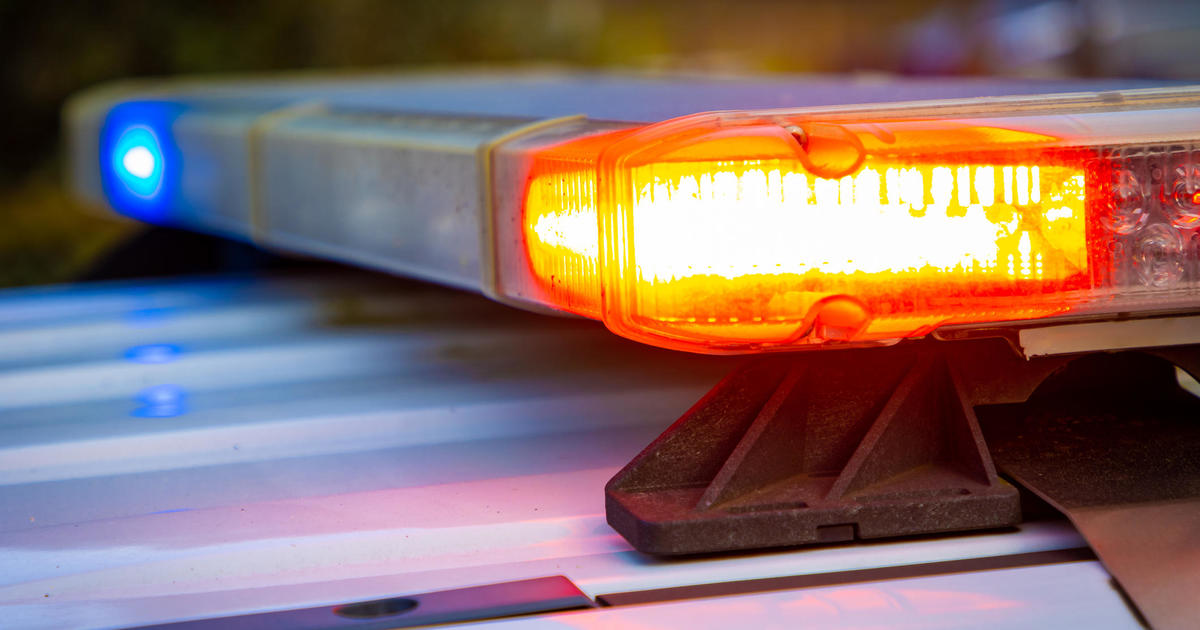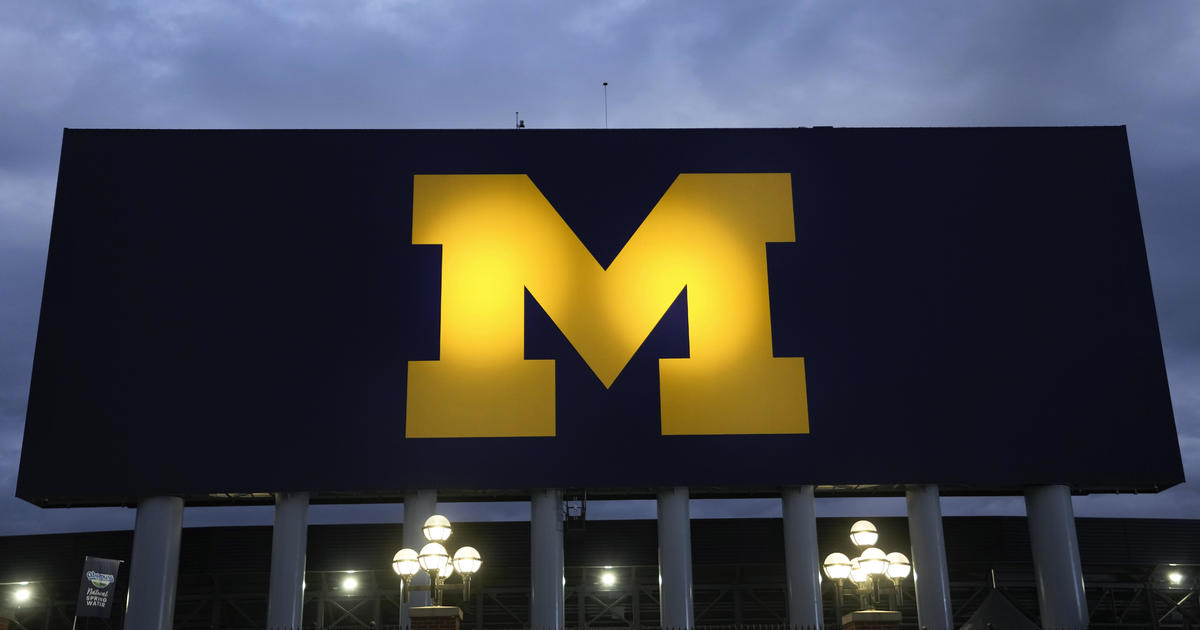MSP: Be Prepared For Possible Flooding, Power Outages And Dangerous Travel
LANSING, Mich. (CBS DETROIT) - With a severe winter storm expected to bring a mix of rain, snow and freezing rain to the Lower Peninsula this weekend the Michigan State Police, Emergency Management and Homeland Security Division is encouraging Michiganders to be prepared for possible flooding, power outages and dangerous travel.
"Keeping Michiganders safe during severe weather is one of my top priorities," said Gov. Gretchen Whitmer. "My office, along with state departments, will be closely monitoring weather conditions as they develop and proactively coordinating with emergency managers to support local response efforts as appropriate. We are also encouraging Michiganders to be safe and take precautions during these extreme weather conditions that are being predicted this weekend."
The National Weather Service is forecasting 2 to 4 inches of rain across the Lower Peninsula beginning Friday with a slow transition to a wintry mix, including freezing rain and sleet, before changing to snow by late Saturday. Flooding is possible along and south of I-94, while the area south of the U.S. 10 corridor and north of I-94 is most at risk for ice accumulations.
"Both flooding and freezing rain have the ability to be life-threatening," said Capt. Emmitt McGowan, deputy state director of Homeland Security and commander of the MSP/EMHSD. "Michigan residents should take steps to prepare now. Keeping supplies like a flashlight, a portable radio and a working cell phone with a backup power source on-hand can help keep you and your family safe during an emergency."
During a power outage
- Do not touch downed power lines or objects in contact with downed lines. Report electrical hazards to police and the utility company.
- Use battery powered lanterns, if possible, rather than candles to light homes without electrical power.
- Avoid actions that can result in dangerous levels of carbon monoxide:
- Do not use a grill indoors.
- Do not use an non-vented gas or kerosene heater.
- Do not use a generator inside a home or garage. Keep these devices outdoors, away from doors, windows and vents that could allow carbon monoxide to come indoors.
- Do not use an oven or stove to heat your home. - Use extreme caution when driving, especially if traffic signals are out.
To stay safe during a winter storm
- Stay indoors if possible. If you must go outside, wear protective gear, such as hats, mittens, gloves, scarf and a warm coat.
- Watch for signs of frostbite, which include loss of feeling or pale appearance of fingers, toes or face.
- Watch for signs of hypothermia, which include uncontrollable shivering, memory loss, drowsiness and exhaustion.
- Check on family, friends and neighbors who are at risk and may need additional assistance.
- Watch pets closely and keep them indoors when possible. Animals can suffer from hypothermia, frostbite and other cold weather injuries.
- Minimize travel. If travel is necessary, keep a full tank of gas and an emergency preparedness kit in your vehicle. Put warm clothing, such as gloves, blankets and hats, in your kit in case you become stranded.
Safe winter driving tips
- Check the weather before leaving for a destination. If the weather forecast looks dangerous, reschedule or postpone the driving trip, if possible.
- DO NOT crowd snowplows. Give snowplow drivers plenty of room to clear snow from the roads.
- Keep tires at the vehicle manufacturer's recommended pressure and routinely check tire pressure during cold weather.
- Make sure the windshield solvent reservoir is full and check the condition of all wiper blades and replace when necessary.
- Wash your vehicle for better visibility to other drivers. Remove ice and snow from all lights, windows and license plate before driving.
Preparing for a flood
- Create an emergency preparedness kit with a 72-hour supply of water, including three gallons per person. Include extra water if you have pets.
- Put important documents and valuables in a water-proof container on the top floor of your home.
- Create an inventory of your household items and take photos of the interior and exterior of your home.
- Double-check sump pumps to ensure they are working properly. If possible, have a battery backup system.
- Make sure your neighborhood storm drains are clear of debris. Clogged storm drains contribute to flooded roadways.
Driving in a flood
- Do not attempt to drive through a flooded road. The depth of water is not always obvious. Just 6 inches of moving water can knock you down and 2 feet of water can sweep your vehicle away.
- Do not drive around a barricade. Barricades are there for your protection. Turn around and go the other way.
- Do not try to take short cuts, they may be blocked. Stick to designated routes.
- Be especially cautious driving at night when it is harder to recognize flood dangers.
Michigan weather is unpredictable any time of year, but especially during the winter months. If you are stranded in a winter storm, do not leave your vehicle. Stay with the vehicle and wait for help.
Motorists are encouraged to check travel conditions and weather reports before driving at www.michigan.gov/roadconditions. Major road closures can be found at www.michigan.gov/drive. The MSP/EMHSD asks that you tune into local news and/or view these websites rather than calling your local MSP post or 911 for travel conditions.
For more information on how to prepare before, during and after an emergency or disaster, visit www.michigan.gov/miready or follow MSP/EMHSD on Twitter at @MichEMHS.
© 2020 CBS Broadcasting Inc. All Rights Reserved. This material may not be published, broadcast, rewritten, or redistributed.



